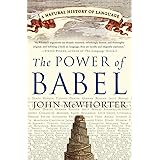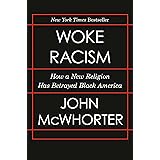
Enjoy fast, free delivery, exclusive deals, and award-winning movies & TV shows with Prime
Try Prime
and start saving today with fast, free delivery
Amazon Prime includes:
Fast, FREE Delivery is available to Prime members. To join, select "Try Amazon Prime and start saving today with Fast, FREE Delivery" below the Add to Cart button.
Amazon Prime members enjoy:- Cardmembers earn 5% Back at Amazon.com with a Prime Credit Card.
- Unlimited Free Two-Day Delivery
- Streaming of thousands of movies and TV shows with limited ads on Prime Video.
- A Kindle book to borrow for free each month - with no due dates
- Listen to over 2 million songs and hundreds of playlists
- Unlimited photo storage with anywhere access
Important: Your credit card will NOT be charged when you start your free trial or if you cancel during the trial period. If you're happy with Amazon Prime, do nothing. At the end of the free trial, your membership will automatically upgrade to a monthly membership.
Buy new:
$21.99$21.99
Ships from: Amazon.com Sold by: Amazon.com
Save with Used - Acceptable
$5.66$5.66

Download the free Kindle app and start reading Kindle books instantly on your smartphone, tablet, or computer - no Kindle device required.
Read instantly on your browser with Kindle for Web.
Using your mobile phone camera - scan the code below and download the Kindle app.

OK
Word on the Street: Debunking the Myth of "Pure" Standard English Paperback – January 1, 2001
Purchase options and add-ons
- Print length300 pages
- LanguageEnglish
- Publication dateJanuary 1, 2001
- Dimensions6 x 0.76 x 9 inches
- ISBN-100738204463
- ISBN-13978-0738204468
The Amazon Book Review
Book recommendations, author interviews, editors' picks, and more. Read it now
Frequently bought together

Similar items that may deliver to you quickly
Editorial Reviews
Review
About the Author
Product details
- Publisher : Basic Books (January 1, 2001)
- Language : English
- Paperback : 300 pages
- ISBN-10 : 0738204463
- ISBN-13 : 978-0738204468
- Item Weight : 15 ounces
- Dimensions : 6 x 0.76 x 9 inches
- Best Sellers Rank: #322,080 in Books (See Top 100 in Books)
- #144 in Etymology (Books)
- #464 in Linguistics Reference
- Customer Reviews:
About the authors

Discover more of the author’s books, see similar authors, read author blogs and more

John McWhorter teaches linguistics, philosophy, and music history at Columbia University, and writes for various publications on language issues and race issues such as Time, the Wall Street Journal, the Daily Beast, CNN, and the Atlantic. he told his mother he wanted to be a "book writer" when he was five, and is happy that it worked out.
Customer reviews
Customer Reviews, including Product Star Ratings help customers to learn more about the product and decide whether it is the right product for them.
To calculate the overall star rating and percentage breakdown by star, we don’t use a simple average. Instead, our system considers things like how recent a review is and if the reviewer bought the item on Amazon. It also analyzed reviews to verify trustworthiness.
Learn more how customers reviews work on Amazon-
Top reviews
Top reviews from the United States
There was a problem filtering reviews right now. Please try again later.
"Put simply, the term language is shorthand for a collection of dialects, of which one happens to be used by the elite and written down, while the others are not," insightfully declares McWhorter. One might also point out that all human beings have the ability to invent a new word. However, others must be converted over to
accepting any such attempt at originality. Words constantly evolve, and some prominent today may disappear tomorrow. McWhorter and I almost certainly agree that the conceded nebulousness of language is no reason to succumb to the nihilism of the philosophical deconstructionists. Both of us harshly view the Stanley Fishs and Jacques Derridas of the academic community. A human being's developed virtue of prudential judgment is more than adequate to guide them through the challenge of ascertaining a workable consensus meaning for each and every word.
McWhorter's brilliant work is not merely an Afro-American scholar's effort to confront the conventionally conservative white language establishment. On the contrary, this esteemed professor has written a masterpiece on the very nature of language itself. "Word on the Street" should be in everyone's personal library.
His basic idea is that there is no such thing as a pure stamdard english and his arguments (as witnessed in the first, and most theoretic, chapter) are quite convincing, though I can't pretend I didn't agree with him going in. Language, instead of being a fixed system with immutable rules, is a pragmatic tool for communication that, like any pragmatic tool, is mutable to the *felt necessities of the times* (O.W. Holmes's phrase).
McWhorter dishes out example after example - English to Spanish to the creole languages of Africa - to show that language is not only always in flux, but many of the changes that would be called *degenerations* now will actually turn out to be... well... improvements. He gives rigorous exampes to show that some of the rules leading to more akward speech, like the rule againts split infinitives or that of never ending sentences with prepositions, were based on arbitrary attempts to cram latin rules onto english and that, particularly in spoken language, have proved to be somewhat futile.
All of this leads to some provocative essays on the practical usage of language. The most provocative of these essays might be the one in which McWhorter makes a strong and reasoned plea to start transforming Shakespeare into more modern prose. It is not only that we don't talk in Shakespearean lingo anymore, but that many of Shakespeare's word-choices, allusions, and phrasings are so far beyond the way we speak, that only the most educated of language-lovers could pick up on their *original meanings.* (Admit it; even though we love Shakespeare, we enjoy him more as an obscure intellectual exercise, rather than as the entertaining writer he deserves to be.)
Other essays have a more practical application, like the discussion of *he* as a personal pronoun of *neutral* sex. Mcwhorter writes that while this won't do, all the other proposals - *she,* *s/he* and *he or she* - are not adequate replacements for various reasons. But what about *they?* We all seem to use it in speech: *Tell the student that they may pick up their test.* And it sounds right, so far as today's speech goes. But the grammar police are once again at it and insist that we can't use *they* because it connotes a plural, rather than singular, entity. The argument for why this is wrong is too long to get into and McWhorter does a good job with it. Needless to say, McWhorter is againt the grammerians.
The only essays I had a bit of a hard time with are the ones on ebonics. To be expected, McWhorter certainy argues well that ebonics is not simply lazy speech or slang, but is as legitimate a dialect as those of the deep south (where *you want to* might be pronounced *yaunt to.*) The problem I had though is that while he gives a good discourse on the *proper rules* that can be discerned in black english, he sems to contradict himself. By showing us the *proper rules* to be found in ebonics, showing that as a dialect it is quite legitimate, he has trouble convincing us that this does not contradict his initial thesis that there are no PURE standard rules of languages or dialects, but rather that they are always in flux. As the reader will note, he tries to reconcile thse two theses but in the end, hardly resolves them.
Nevertheless, this book is a great antidote to the overly-strict formalism of grammarians. For the record, he is not a nihilist that blithely suggests an 'anything goes' approach. While necessary for pragmatic purpses of communicatin, rules, McWhorter argues, are not things that (a) cannot be broken and (b) cannot change over time for the better. Rules always have changed and preumably always will, whether grammarians like it or not.











